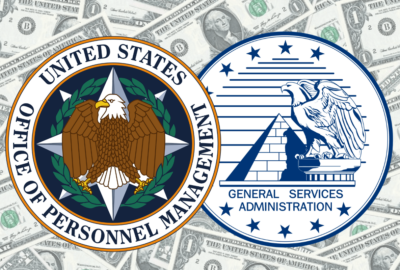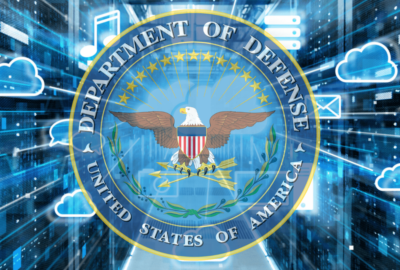To listen to the Federal Newscast on your phone or mobile device, subscribe in PodcastOne or Apple Podcasts. The best listening experience on desktop can be found using Chrome, Firefox or Safari.
- The Defense Department Inspector General plans to undertake a new investigation into how the Pentagon handles issues like diversity and inclusion. DoD IG originally announced it would look into its training around race and other issues back in September. However, last week the office said it was canceling that investigation and starting a new project that will focus around a controversial executive order from the White House on combating race and sex stereotyping.
- The Department of Homeland Security expects for the second year in a row to top more than $6 billion awarded to small firms. That equates to 35-36% of all prime contracts going to small businesses in fiscal 2020. DHS chief procurement officer Soraya Correa says while DHS is still refining its totals for last year, she expects to match or come close to what the agency did in 2019.
- The Office of Personnel Management is quietly abandoning efforts to merge with the General Services Administration. OPM told employees it was no longer devoting time or energy to the proposed merger and would instead focus on ways to ensure the agency can function independently. An OPM senior official says the agency is looking at other options. Members of Congress say the news is welcome. But they have other concerns about the number of political appointees at the agency and the prospects of the president’s Schedule F executive order. (Federal News Network)
- In an effort to get in line with a White House Executive Order issued last year, the Equal Employment Opportunity Commission is changing how it issues and pulls guidance it gives employers. A set of final rules from the agency will make guidance documents readily available online and also allow time for public input. This in response to the President’s EO in October of last year, which called on agencies to make sure new agency regulations are doled out more carefully and fairly.
- A new pilot from the Social Security Administration could help banks verify customers’ Social Security numbers electronically. e-Consent based verification will let an initial group of nine financial and data services providers verify online, if a person’s SSN, name, and date-of-birth combination matches Social Security records. Individuals must first supply Social Security with written consent, but the agency will accept electronic signatures. The agency will verify the match, but not the person’s identity. It plans to expand the program next year.
- The Department of Transportation Department announced the Unmanned Aircraft Systems Integration Pilot Program wrapped up last week. The IPP tested ways to integrate drones into every day life and commercial airspace. It was a public-private partnership between the Federal Aviation Administration, private industry and several local governments across the U.S. But don’t expect to see drones replace delivery trucks tomorrow. A new initiative called BEYOND will pick up where the IPP left off. It will explore further challenges to integrating drones into commercial airspace.
- For the first time there is now a position in the Pentagon dedicated solely to the ideas around space. The Defense Department established an assistant secretary for space policy position. That person will be responsible for supervising the rules and guidelines around space warfare. The position will also coordinate space interests between nations and other government agencies. Justin Johnson will perform the duties of the assistant secretary until someone is appointed by the president and confirmed by the Senate. The move comes after DoD already established the Space Force and U.S. Space Command.
- DoD and GSA are trying again to get a major cloud program off the ground. More than a year after the initial award, the General Services Administration and the Defense Department chose the same contractor for the Defense Enterprise Office Solutions, or DEOS, contract. GSA announced Friday it again picked the team led by CSRA, now known as General Dynamics-IT, for the 10-year, $4.4 billion dollar blanket purchase agreement. GSA and DoD initially awarded the contract to CSRA in August 2019 only for it to come under protest twice over the last year. Under DEOS, the Pentagon will implement Microsoft Office 365 and associated capabilities including word processing and spreadsheets, email, collaboration, file sharing and storage. (Federal News Network)
- The Library of Congress is working with the General Services Administration’s Centers of Excellence program to modernize its copyright office’s contact centers. Its Office of Public Information and Education fields public inquiries about copyrights, such as registration policies and procedures. The Library of Congress and the Centers of Excellence will look at current gaps in providing these services, and technology solutions that would improve performance. GSA’s Centers of Excellence have worked with a wide swath of government agencies, including the Departments of Agriculture, Labor, and Housing and Urban Development.
- The State Department is asking passport services employees still out on weather and safety leave to self-certify whether they’re considered high-risk for COVID-19. The agency is asking employees about conditions that include currently having cancer, chronic kidney disease, a severe heart condition, or Type Two Diabetes. A local chapter of the National Federation of Federal Employees says employees were told to submit surveys by last Friday, asking whether they had any of these conditions. According to NFFE, the State Department will have employees not considered a high-risk to return to the office by November 16. Supervisors will have a conversation with their employees about their status by November 9.
- The Thrift Savings Plan is changing the way it handles catch-up contributions for its participants. Members age 50 or older who contribute more than the standard IRS deferral next year will automatically have those contributions count toward the catch-up limit. The changes go into affect in January. TSP participants still have to complete the current process and make a separate election for any catch-up contributions made this year. Participants can contribute a max of $19,500 toward their retirements under IRS policy. The annual catch-up limit is $6,500
Copyright
© 2024 Federal News Network. All rights reserved. This website is not intended for users located within the European Economic Area.





